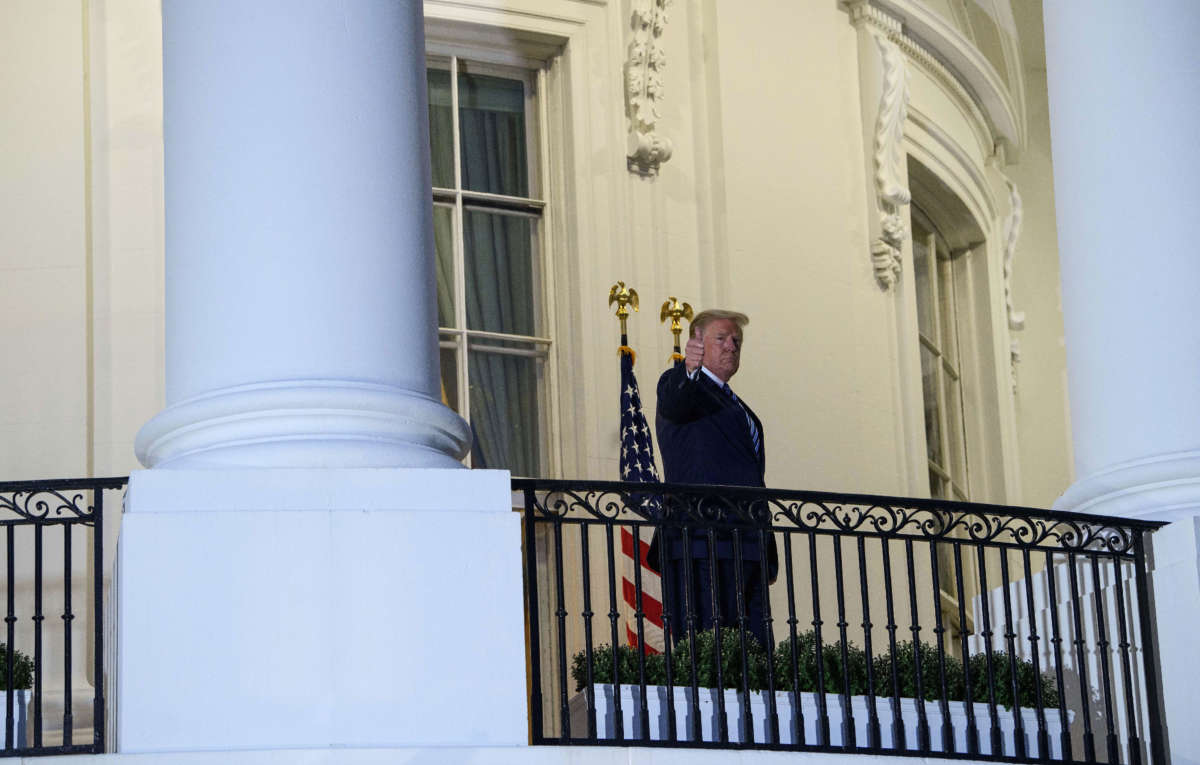President Donald Trump has ordered his team of negotiators to end talks with Democrats in Congress regarding the possibility of passing a new stimulus package related to the economic fallout from the coronavirus pandemic.
“I have instructed my representatives to stop negotiating until after the election when, immediately after I win, we will pass a major Stimulus Bill that focuses on hardworking Americans and Small Business,” Trump said.
In a series of tweets tied to his announcement, the president encouraged Republicans in the Senate to instead focus on confirming his nominee for the Supreme Court. He also criticized Democrats, specifically Speaker of the House Nancy Pelosi, for pushing a stimulus deal that cost more than he was willing to spend, suggesting that it was the reason why talks broke down, and claiming that party leaders had wanted to “bailout poorly run, high crime, Democrat States.”
Pelosi responded to Trump in a statement, casting blame on him for refusing “to put money in workers’ pockets, unless his name is printed on the check.”
“President Trump showed his true colors: putting himself first at the expense of the country, with the full complicity of the GOP Members of Congress,” Pelosi said.
Trump’s halting of negotiations came on the same day that Federal Reserve Chair Jerome Powell said that more economic stimulus was needed. Moving forward without a stimulus, Powell said on Tuesday, could “lead to a weak recovery, creating unnecessary hardship for households and businesses.”
He stressed that the worries the president had expressed — of spending too much in the stimulus bill — were minimal.
“The risks of overdoing it seem, for now, to be smaller,” Powell said. “Even if policy actions ultimately prove to be greater than needed, they will not go to waste. The recovery will be stronger and move faster if monetary policy and fiscal policy continue to work side by side to provide support to the economy until it is clearly out of the woods.”
Millions of Americans are in desperate need of economic aid, as they remain jobless as a result of the economic impact of the coronavirus pandemic. As much as half of all workers who had lost their jobs earlier this year due to the crisis have yet to find work.
Russell Weaver, director of research at the Cornell University School of Industrial and Labor Relations Buffalo Co-Lab, explained last month that failure to provide relief to struggling households across the country could have a negative ripple effect for the rest of the economy.
“Lower consumer spending will mean lower sales tax revenues for state and local governments, and lower revenues for many private sector businesses, large and small,” Weaver said, adding that, without a stimulus plan, either in the form of extra unemployment insurance payments or additional direct income to households, “additional job losses are possible if appropriate actions are not taken to stimulate the economy.”
Americans by-and-large are supportive of additional stimulus payments to households, similar to the $1,200 payment per adult that was approved of in the spring. According to polling from Gallup published in early September, 70 percent of Americans back another round of stimulus payments, with just 17 percent opposed to the idea.
Join us in defending the truth before it’s too late
The future of independent journalism is uncertain, and the consequences of losing it are too grave to ignore. To ensure Truthout remains safe, strong, and free, we need to raise $24,000 by the end of today. Every dollar raised goes directly toward the costs of producing news you can trust.
Please give what you can — because by supporting us with a tax-deductible donation, you’re not just preserving a source of news, you’re helping to safeguard what’s left of our democracy.
